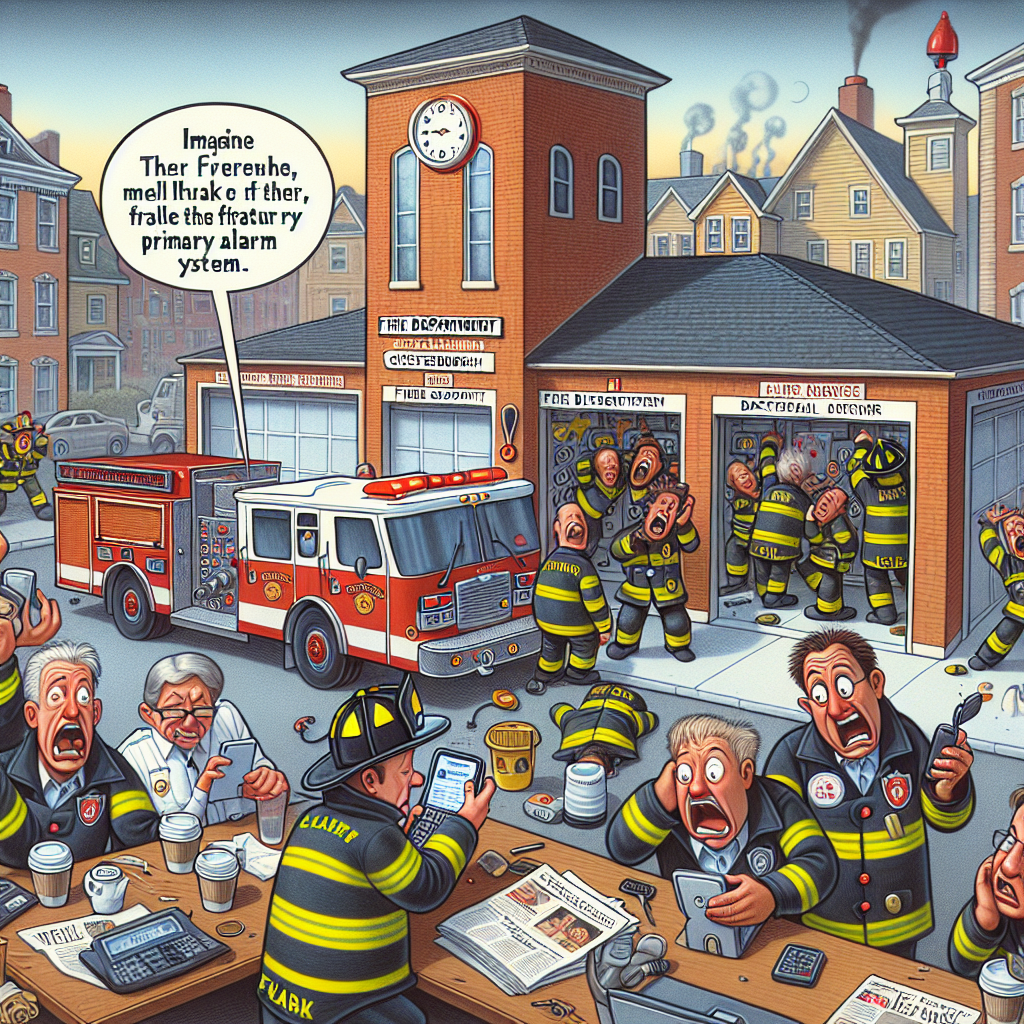"Silent Alarms: Chesterburgh’s Fire Department Faces Critical Emergency System Failure Amid Rapid Growth"

At precisely 7:14 a.m. on March 3rd, the Chesterburgh Fire Department’s primary alarm system failed during a routine drill, according to internal incident logs obtained from the department. The malfunction lasted for nearly 45 minutes before a backup system was manually engaged. This lapse raises pressing questions about the readiness and maintenance of critical emergency infrastructure in Chesterburgh, a town that recently expanded its residential footprint by 12 percent over the past two years.
The breakdown was first noted by Battalion Chief Melissa Tucker, who emailed the department’s administration at 7:17 a.m., stating, “Primary alarm circuit unresponsive; backup activation pending.” By 7:59 a.m., the central dispatch was fully operational, but not without the risk of delayed or missed emergency notifications for over three-quarters of an hour during morning rush hours when response times are most vital.
Chesterburgh, population 38,640 as of the 2023 municipal report, depends heavily on the responsiveness of its emergency services. City Council reports and budget allocations show the last substantial investment in fire department alarm systems occurred in 2016, amounting to $247,500. Maintenance contracts have been annual but reportedly lean on reactive repairs rather than scheduled upgrades. This may be the first public sign of a ticking clock that officials have downplayed.
In a phone interview on March 5th, Fire Chief Alan Prentiss downplayed the severity of the outage, calling it “an isolated incident arising from an unexpected electrical fault.” He confirmed that the department is already reviewing upgrade options but did not provide a timeline or budget estimate. “No calls were missed,” Prentiss said, “and the backup systems are there precisely for these contingencies.”
Yet reports from local residents who called the station during the outage suggest a different picture. Jane Wilkerson, a nurse residing in the Elmwood district, dialed 911 twice at 7:25 a.m. after her elderly neighbor reported chest pains. Both calls went unanswered for nearly ten minutes, she said.
“I waited. And waited. I even tried the non-emergency number, though nothing changed until I contacted a relative to drive over,” Wilkerson told this reporter during a March 6th interview. “When emergency services finally arrived, it was at least 14 minutes later than usual.”
This discrepancy aligns with logs from the city’s 911 dispatch system, which confirmed a delay in call processing during the incident timeframe. The logs, timestamped and redacted for privacy, indicate an average caller wait time spike from under 30 seconds to nearly seven minutes between 7:20 and 7:45 a.m. A spokesperson from the city’s Information Technology Department attributed the delay to the “system fault” that morning but refused to disclose the affected equipment or specifics of the response protocol.
Further digging uncovered additional concerns about emergency system readiness. Chesterburgh’s 2023 Public Safety Annual Report notes that 22 percent of emergency alarm hardware is past its manufacturer-recommended service life, some models dating back 15 years. This includes the central fire alert console reported to have failed on March 3rd.
City Councilman Robert Gillespie, whose ward includes the downtown and Elmwood districts, expressed frustration over these findings. “We keep pouring money into roads and beautification, which is important, but if our fire systems don’t work, none of that matters,” Gillespie said at a meeting on March 7th. “We’re overdue for a comprehensive audit and overhaul.”
The budget committee has scheduled a hearing for April 14th to discuss emergency services funding. Preliminary requests have surfaced to allocate an additional $500,000 towards replacing obsolete alarm infrastructure and increasing maintenance staffing. City Manager Elaine Harper declined to comment on
